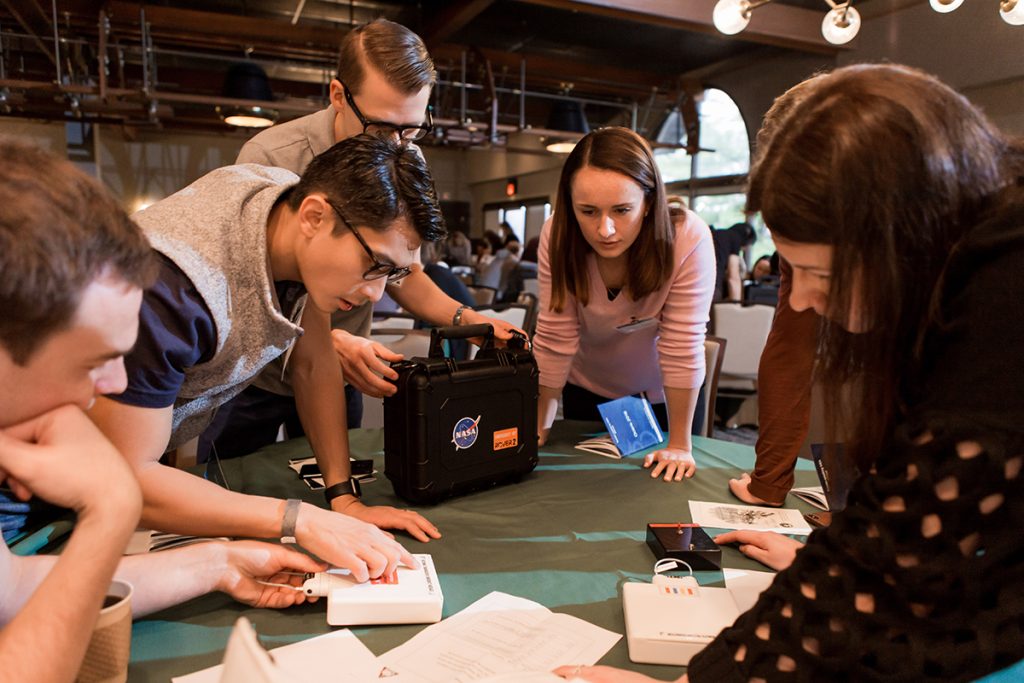Have you ever wondered how a simple game could transform the way people work together? Escape rooms are more than just a trendy pastime-they are powerful tools for building stronger connections.
Groups are placed in a themed space filled with clues, riddles, and challenges. The goal is to solve the puzzles and “escape” before time runs out. This shared mission requires focus, trust, and communication.
Along the way, players discover each other’s strengths. By reading this guide, you’ll learn how these room adventures boost teamwork, problem-solving, and relationships.
Understanding What Makes Escape Rooms Special
Players in escape rooms have to solve puzzles to get to the end of the game. As an example, one room might be a mystery, a treasure hunt, or a secret mission.
It’s made in a way that makes players think outside the box and work together. Every clue that is found feels like a small victory, which builds momentum and excitement.
The time limit gives the experience a sense of urgency that makes it even more interesting. Players are told to feel free to talk about their thoughts and hear other points of view. This interaction helps everyone in the group to trust and respect each other.
How Escape Rooms Encourage Collaboration
In every escape room game, you have to work together to save the room. There is no way for one person to finish all of the challenges in time. It’s natural for players to split up tasks based on their skills and interests.
For instance, one person might work on decoding messages while someone else puts things that have been found in order. Sharing the responsibility encourages people to work together and cooperate. Groups learn to value each person’s ideas equally.
People have to communicate clearly because they want to succeed together. People often keep working together like this after the game is over, which makes relationships stronger in other situations.
Boosting Problem-Solving Skills Through Play
Escape rooms are like puzzles in real life; they’re a fun way to stimulate the mind. This game requires players to use logic, pay attention to details, and make connections between clues.
Through trial and error, each step forces you to think creatively. Every day life, outside of games, uses these skills to solve problems. Feeling rushed for time makes things more intense, requiring quick but careful choices.
When you learn from your mistakes, they stop being setbacks and become advantages. Absolutely everyone has a chance to share their way of solving the puzzles. For skill development, escape rooms are great because they require both creativity and logic.
The Role of Communication in Success
Good communication is key to arriving on time. Players need to share discoveries quickly and clearly. Listening is just as important as speaking during the game.
Misunderstandings can waste precious minutes. Effective communication helps the group avoid repeating the same tasks. It also makes it easier to combine partial clues from different players.
Many participants leave the game realizing how valuable open dialogue is. This lesson can carry over into professional and personal relationships, improving group harmony.
Making Every Team Member Feel Valued
One of the most rewarding parts of escape rooms is seeing everyone contribute. Even quiet or shy members often shine when given the chance to solve a clue.
The variety of challenges means there is something for everyone’s strengths. Physical tasks, pattern recognition, and word puzzles offer different ways to get involved.
Success depends on recognizing and using each member’s abilities. This shared recognition helps build self-esteem and mutual respect. Groups leave with a stronger sense of unity. Such positive experiences can deepen bonds beyond the game.
Creating Lasting Memories Together
Shared adventures often lead to the strongest memories. In escape rooms, the mix of excitement, tension, and laughter creates moments that stick.
Whether it’s the thrill of solving a tough puzzle or the funny mistakes made along the way, these experiences are memorable. People often retell these stories long after the game is over.
These shared memories become inside jokes or reminders of teamwork. They can help build a sense of belonging among group members. For some, it even becomes a tradition to try new rooms together.
Why Escape Rooms Work for All Types of Groups
Escape rooms are versatile and work well for friends, families, and colleagues. They offer a safe environment where everyone can participate equally.
Unlike competitive sports, physical ability is not a main factor. The challenges rely more on thinking, observation, and teamwork. This makes the activity inclusive for all ages and backgrounds.
Groups can choose difficulty levels to match their comfort zone. The variety of themes keeps the experience fresh and exciting. This adaptability is why escape rooms have become a go-to choice for many group outings.
Building Trust Through Shared Challenges
Trust is built when people face challenges together. In escape rooms, players must rely on each other to progress. Sharing ideas, solving puzzles, and making quick decisions requires confidence in the group’s abilities.
Trust grows when members see that their teammates are dependable under pressure. This is especially valuable in workplace settings, where cooperation is essential.
Many companies now use escape rooms as part of their team building activities. The trust built here often leads to better performance and morale outside the game. Such benefits make the experience more than just entertainment.
Tips for Making the Most of Your Escape Room Experience
To get the most out of an escape room, it’s helpful to go in with a positive mindset. Encourage everyone to speak up and share their thoughts. Divide tasks so each person has a role to play.
Avoid crowding around one puzzle-spread out and cover more ground. Listen to ideas even if they seem unusual; they might lead to breakthroughs.
Manage your time wisely by moving on from a puzzle if you get stuck. Remember to have fun and enjoy the process. A relaxed, friendly atmosphere often leads to the best results.
Build Stronger Bonds with Exciting Escape Room Adventures
As well as being exciting games, escape rooms are great places to get to know each other better. To value each other’s strengths, groups work together, talk to each other, and face common challenges.
Combining trust, fun, and solving problems makes an impression that lasts. Each of these room adventures makes memories that bring people together, whether they’re with family, friends, or coworkers.
Collaboration can be made better in everyday life by using what was learned. It can be easy and effective to bring people together by going to an escape room.
Visit our website for more like this.

